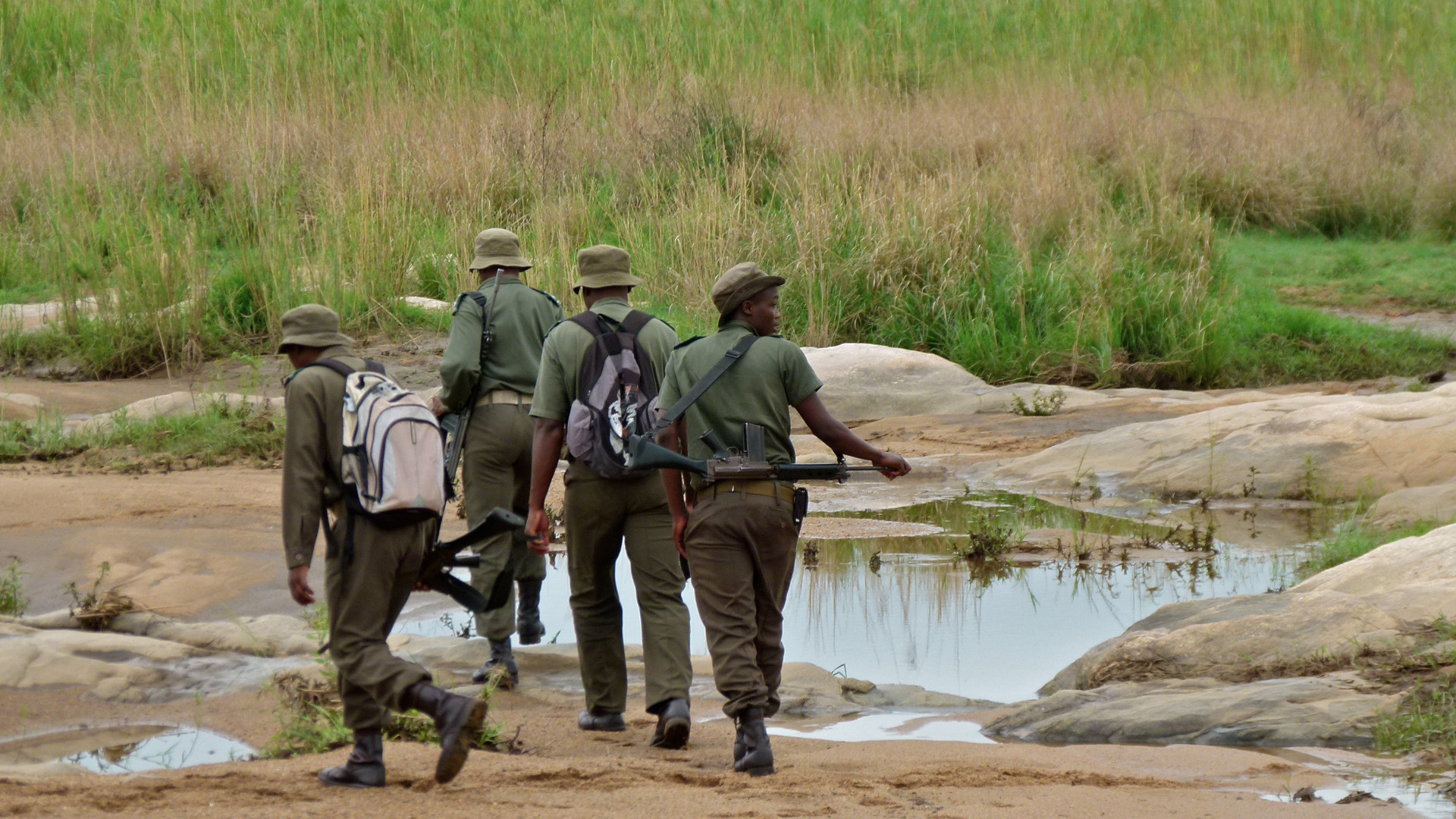On a dark Mozambique night just over a year ago, sleeping villagers were brutally attacked in their homes. It was coordinated, targeted violence against men who work to stop the poaching of some of the planet’s last remaining rhinos. Today a rhino is killed every eight hours, and estimates indicate that a mere 30,000 are now left on Earth, down from millions a few centuries ago.
In this assault both the wildlife rangers and their families became victims. The poachers looted homes, destroying personal property and donated equipment such as bikes, cell phones and radios — all essential for anti-poaching work. The vicious attack left one man with critical injuries after he was abducted, tortured and dumped roadside.
This is just one story among many about the dangers park rangers face in their critical work to save Earth’s endangered and threatened wildlife and other biodiversity. Serving as a ranger or guard in a park, preserve or sanctuary is among the most challenging jobs in the world. In the past 10 years, hundreds of rangers have been killed in the line of duty — at least 105 in the past year alone. Some have lost their lives in tribal or boundary disputes; many die or are wounded at the hands of poachers, illegal loggers and terrorists. In many places this dangerous employment is poorly compensated, too, with rangers working in locations far away from their homes and family for long periods of time. Some even lack adequate equipment, such as uniforms or radios.
Even in the United States, as NPR reported several years ago, rangers face many risks. They cover wide spaces and remote locales, often with little backup. As the law enforcement for public lands, park rangers deal with varied crimes, from sexual assaults and stabbings to weapons and drugs scenarios, such as meth labs and marijuana growing on public lands.
One ranger noted that the issues of the broader society are reflected in our supposed protected wild spaces. That includes, globally, a dramatic increase in wildlife and plant trafficking, an illicit trade valued at an estimated $70 billion to $213 billion annually. So as long as this rape of the planet remains at crisis levels for too many species — threatening to drive bears, elephants, tigers, rhinos and a multitude of other species extinct — rangers will continue to be in grave danger from the often well-organized and well-armed criminals and rebel groups behind this grim business.
The eleventh World Ranger Day — today, July 31 — gives an opportunity to pause for the brave men and women who protect our wild creatures and wild spaces. Every three days a park ranger loses his or her life in the line of duty. We should all do what we can to support these rangers and the families who have lost their loved ones defending the wild. Organizations including the Thin Green Line Foundation and the International Ranger Federation work directly to support the tens of thousands of rangers in parks globally and to build awareness of their contributions.
And in Mozambique, last year’s brutal attack on those holding the thin green line to protect wild rhino did not go unchallenged. The International Anti-Poaching Foundation immediately launched a campaign to assist the rangers. IAPF operates on the front lines of the world wildlife wars to protect some of the most endangered animals, including the rhino, by using military principles in training rangers to be the first and last line of defense for nature.
Working with the governments of South Africa and Mozambique, IAPF’s efforts along the South Africa-Mozambique border of Kruger National Park — home to 40 percent of the world’s remaining rhinos — have reduced losses dramatically and increased arrests of poachers. At the same time, Mozambique, one of the poorest countries in the world, has increased its protected areas by almost 130,000 acres. As a result, for the first time since rhinos were declared extinct in Mozambique in 2013, a resident population of approximately 25 rhinos has re-established itself in the country.
Where there’s courage, there’s hope. Keep it up, rangers.
© Maria Fotopoulos, all rights reserved



Too many people — mainly liberals and leftists who don’t care about wildlife or the natural environment — make excuses for these immoral poachers (they don’t have good ways of earning a living, etc.). Being poor is no excuse for immoral and harmful behavior. These poachers are uncaring people, period. I’d starve before I’d kill an endangered animal.